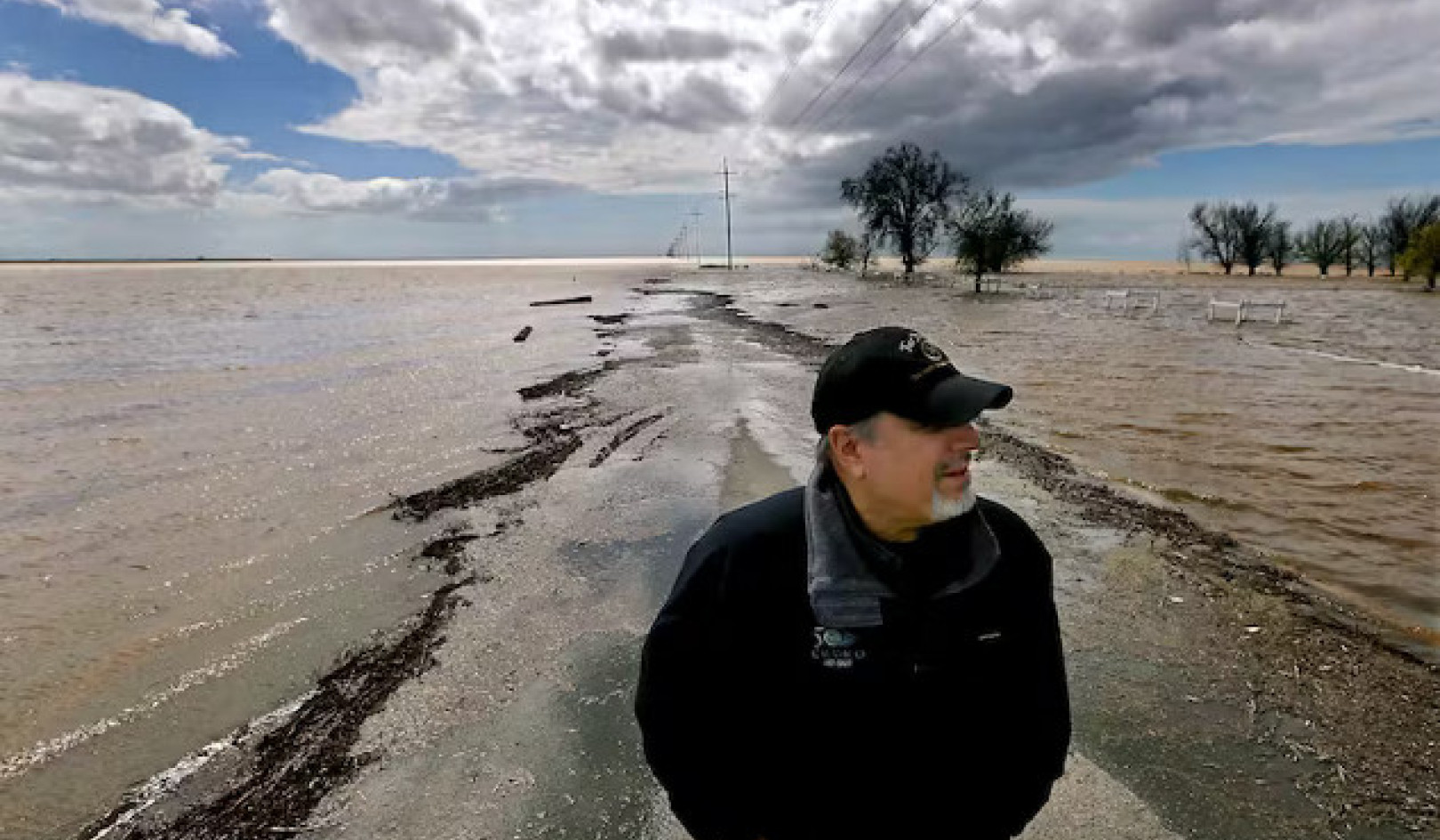
Despite calls for a fifth convention two decades ago, military conflict continues to destroy megafauna, push species to extinction, and poison water resources.
Blocks of C-4 detonate during a demolition range with U.S. Marines assigned to Task Force Southwest and Afghan National Army soldiers with 215th Corps at Camp Shorabak, Afghanistan, Aug. 9, 2017. (Photo: Sgt. Lucas Hopkins/U.S. Marine Corps )
In a letter to the editor published Tuesday by the journal Nature, two dozen scientists from around the world urged the United Nations' International Law Commission to adopt a Fifth Geneva Convention that creates protections for the environment in armed conflicts.
"We call on governments to incorporate explicit safeguards for biodiversity, and to use the commission's recommendations to finally deliver a Fifth Geneva Convention to uphold environmental protection during such confrontations."
—24 scientists
The four existing Geneva Conventions and their three additional protocols are globally recognized treaties that establish standards under international humanitarian law for the treatment of wounded troops in the field, soldiers shipwrecked at sea, prisoners of war, and civilians during armed conflicts. Violating the treaties amounts to a war crime.
"Despite calls for a fifth convention two decades ago, military conflict continues to destroy megafauna, push species to extinction, and poison water resources," notes Tuesday's letter. "The uncontrolled circulation of arms exacerbates the situation, for instance by driving unsustainable hunting of wildlife."
The letter—entitled "Stop Military Conflicts From Trashing Environment"—was spearheaded by Sarah M. Durant of the Zoological Society of London and José C. Brito of the University of Porto in Portugal. The 22 additional signatories (pdf) are affiliated with organizations and institutions in Egypt, France, Hong Kong, Mauritania, Morocco, Niger, Libya, Portugal, Spain, the United Kingdom, and the United States.
"We call on governments to incorporate explicit safeguards for biodiversity, and to use the commission's recommendations to finally deliver a Fifth Geneva Convention to uphold environmental protection during such confrontations," says the letter, which recognizes that the U.N. commission is meeting this month to discuss expanding on the principles it has drafted (pdf) about protecting the environment in war zones.
Adopting an environment-focused convention "would provide a multilateral treaty that includes legal instruments for site-based protection of crucial natural resources," the letter explains. It also highlights the importance of companies and governments collaborating to regulate weapons transfers, and holding the military industry accountable for its impact on the environment.
"The brutal toll of war on the natural world is well documented, destroying the livelihoods of vulnerable communities, and driving many species, already under intense pressure, towards extinction."
—Sarah M. Durant, Zoological Society of London
Zoological Society of London's Durant told The Guardian in an interview published Wednesday that "the brutal toll of war on the natural world is well documented, destroying the livelihoods of vulnerable communities, and driving many species, already under intense pressure, towards extinction."
"We hope governments around the world will enshrine these protections into international law," she said. "This would not only help safeguard threatened species, but would also support rural communities, both during and post-conflict, whose livelihoods are long-term casualties of environmental destruction."
Durant's co-author Brito added that "the impacts of armed conflict are causing additional pressure to imperiled wildlife from the Middle East and North Africa. Global commitment is needed to avoid the likely extinction of emblematic desert fauna over the next decade."
A 2008 article from Worldwatch Institute—a U.S.-based environmental research group—details how "widespread concern about the environmental effects of warfare began with the American war in Vietnam," when soldiers infamously used the powerful herbicide known as Agent Orange to wipe out forest cover and crops.
Global concerns over the environmental effects of war arose again in the 1990s, when Iraqi forces burned Kuwaiti oil fields, and the United States used bombs and missiles that contained depleted uranium on Iraq. As The Guardian reported in 2014, "researchers have suggested the radiation from these weapons has poisoned the soil and water of Iraq, making the environment carcinogenic."
The letter in Nature is not the first demand that international rules of war be crafted to protect the environment. In 2007, the Chartered Institution of Water and Environmental Management (CIWEM), a U.K.-based charity, issued one such call.
CIWEM's then-executive director Nick Reeves said at the time that "long-term environmental damage is an inevitable consequence of war. The environment may seem a minor casualty but combined with the destruction of democratic informed decision-making, war prolongs human suffering and undermines the foundation for social progress and economic security."
"CIWEM demands a convention to examine the establishment of U.N. protocols for the protection of the environment," said Reeves. "We also need to acknowledge that fighting occurs where resources are scarce due to over population, meaning we need sensible population policies. We must treat the environment and each other with more respect."
Read the full letter published by Nature Tuesday below:
The United Nations' International Law Commission is meeting this month to push forward a 2013 programme to protect the environment in regions of armed conflict (go.nature.com/2ewdyj). We call on governments to incorporate explicit safeguards for biodiversity, and to use the commission’s recommendations to finally deliver a Fifth Geneva Convention to uphold environmental protection during such confrontations.
Despite calls for a fifth convention two decades ago, military conflict continues to destroy megafauna, push species to extinction and poison water resources (see, for example, J. C. Brito et al. Conserv. Lett. https://doi.org/gfhst9; 2018). The uncontrolled circulation of arms exacerbates the situation, for instance by driving unsustainable hunting of wildlife.
A Fifth Geneva Convention would provide a multilateral treaty that includes legal instruments for site-based protection of crucial natural resources. Companies and governments need to work together to regulate arms transfer (see go.nature.com/2lgtfx). And the military industry must be held more accountable for the impact of its activities.
About The Author
Jessica Corbett is a staff writer for Common Dreams. Follow her on Twitter: @corbett_jessica.
This article originally appeared on Common Dreams
Related Books
Climate Leviathan: A Political Theory of Our Planetary Future
by Joel Wainwright and Geoff Mann How climate change will affect our political theory—for better and worse. Despite the science and the summits, leading capitalist states have not achieved anything close to an adequate level of carbon mitigation. There is now simply no way to prevent the planet breaching the threshold of two degrees Celsius set by the Intergovernmental Panel on Climate Change. What are the likely political and economic outcomes of this? Where is the overheating world heading? Available On Amazon
How climate change will affect our political theory—for better and worse. Despite the science and the summits, leading capitalist states have not achieved anything close to an adequate level of carbon mitigation. There is now simply no way to prevent the planet breaching the threshold of two degrees Celsius set by the Intergovernmental Panel on Climate Change. What are the likely political and economic outcomes of this? Where is the overheating world heading? Available On Amazon
Upheaval: Turning Points for Nations in Crisis
by Jared Diamond Adding a psychological dimension to the in-depth history, geography, biology, and anthropology that mark all of Diamond's books, Upheaval reveals factors influencing how both whole nations and individual people can respond to big challenges. The result is a book epic in scope, but also his most personal book yet. Available On Amazon
Adding a psychological dimension to the in-depth history, geography, biology, and anthropology that mark all of Diamond's books, Upheaval reveals factors influencing how both whole nations and individual people can respond to big challenges. The result is a book epic in scope, but also his most personal book yet. Available On Amazon
Global Commons, Domestic Decisions: The Comparative Politics of Climate Change
by Kathryn Harrison et al Comparative case studies and analyses of the influence of domestic politics on countries' climate change policies and Kyoto ratification decisions. Climate change represents a “tragedy of the commons” on a global scale, requiring the cooperation of nations that do not necessarily put the Earth's well-being above their own national interests. And yet international efforts to address global warming have met with some success; the Kyoto Protocol, in which industrialized countries committed to reducing their collective emissions, took effect in 2005 (although without the participation of the United States). Available On Amazon
Comparative case studies and analyses of the influence of domestic politics on countries' climate change policies and Kyoto ratification decisions. Climate change represents a “tragedy of the commons” on a global scale, requiring the cooperation of nations that do not necessarily put the Earth's well-being above their own national interests. And yet international efforts to address global warming have met with some success; the Kyoto Protocol, in which industrialized countries committed to reducing their collective emissions, took effect in 2005 (although without the participation of the United States). Available On Amazon
From The Publisher:
Purchases on Amazon go to defray the cost of bringing you InnerSelf.comelf.com, MightyNatural.com, and ClimateImpactNews.com at no cost and without advertisers that track your browsing habits. Even if you click on a link but don't buy these selected products, anything else you buy in that same visit on Amazon pays us a small commission. There is no additional cost to you, so please contribute to the effort. You can also use this link to use to Amazon at any time so you can help support our efforts.



























